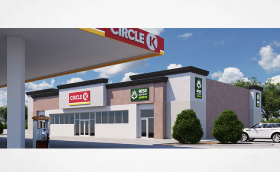Business of Cannabis
Germany’s long-anticipated ‘Pillar 2’ is in danger of being abandoned by the government amid ongoing political roadblocks both domestically and from the EU.
With the growing political prominance of right-leaning parties in German state elections, and the expectation they will have a much larger voice in government in the coming months, the race is now on to push through legislation to get the second half of its cannabis liberalisation project moving.
Meanwhile, a growing number of municipalities are voicing their interest in participating in the model projects set to be introduced by Pillar 2.
What is Pillar 2?
Pillar 2, which was first announced in the summer of 2023, was the traffic light coalition’s response to pushback from the European Commission regarding their initial plans to launch a full commercial adult use market.
Reports suggest that the EC had informed the German government that these plans would violate numerous EU laws like the Shengen Agreement, potentially putting the country under threat of infringement proceedings.
The architects of the bill then proposed two separate ‘pillars’ which would still aim to achieve its key goals without violating EU law.
The second of these would enable the launch of ‘pilot projects’, where open sale of adult-use cannabis would be allowed for a limited duration in order to scientifically study the impacts on various areas, including the black market, health and youth protection.
This strategy is already being successfully employed in Switzerland, which now has seven pilot projects running throughout its various states.
Where does it currently stand?
A draft of the bill was initially slated to be ready by the end of summer 2023, but this was delayed until April 2024.
While it was initially planned that a separate secondary law would have to be implemented to launch Pillar 2, as Business of Cannabis reported in May, it is now expected to be regulated under the current CanG law, meaning a separate law will not need to be passed to push it through.
Under Chapter 1 Section 2 Paragraph 4 of the current CanG Act, ‘anyone who wants to possess, cultivate, produce, import, export, acquire, receive, deliver, pass on cannabis for scientific purposes, extract cannabinoids from the cannabis plant or trade in cannabis for scientific purposes requires a permit’.
In the April draft bill, titled the ‘Consumer Cannabis Science Responsibility Ordinance’ (KCanWV), the Federal Ministry of Agriculture and Food (BLE) assigned itself as the responsible authority for permits, monitoring and implementing regulations.
Read more at
https://businessofcannabis.com/where-are-germanys-planned-cannabis-model-projects?utm_medium=email&_hsmi=95269613&utm_content=95269613&utm_source=hs_email


















